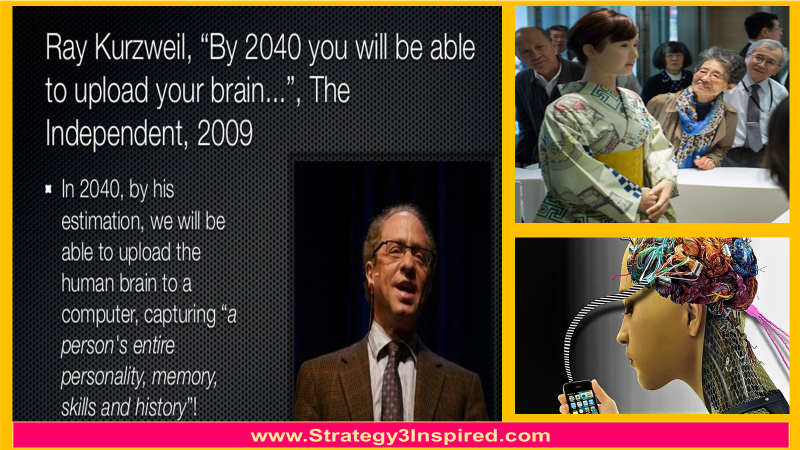|
What exactly is Artificial Intelligence (AI)? AI as a concept has gone far beyond sci-fi machines made popular on TV shows such as Star Trek. AI has seen some dramatic changes recently. AI is still based on creating machines that can think like humans, however we have seen some major advances in this field. AI is a system of machine intelligences that can perform tasks with the capacity of a basic thought process similar to computers and binary logic. AI technology is already impacting our lives with the use of smart cars, video gaming, virtual assistants, news creation, surveillance, smart homes, wearable technology and more. How AI is shaping the future On a personal level people have already assimilated with AI on a day-to-day basis from smartphones, smart cars, banking, smart home devices and wearables. For example, most of us rely on car navigation systems for directions when looking for the nearest restaurant or gas station. The use of such technologies and our reliance on such systems is going to grow exponentially as we see more advances in AI. Virtual personal assistants – AI is able to gather information on your requests based on your speech and then give you results that are specific to your preferences. It is a system that can learn about its users. In the future AI will also predict its user’s needs. A key example is Microsoft Cortana that is able to go through vast amounts of data to organise, track and analyse its user’s preferences and tailor results to meet the user’s specific request. Example: Cortana, Siri and Google Now are digital personal assistants that use your voice to provide you with information that you requested. It could be asking what meetings you have scheduled that day or where the next Starbucks coffee shop is. Your virtual assistant will find the information you asked for and deliver it via your phone, apps, in-car systems etc. Another interesting example is how AI played a role in the Trump election campaign. Cambridge Analytica provided an AI based system for the Trump campaign. Their system gathered vast amounts of data about consumers and their lifestyles. This enabled psychographic profiles of American voters. Information and data gathering by companies like Cambridge Analytica means we now have access to huge amounts of data about almost anything we need insights on. The big data and machine learning revolution “Machine learning is the science of getting computers to act without being programmed, and is used in autonomous cars, speech-recognition and internet search engines…” Chief Executive Officer Jeff Bezos, Amazon. AI is impacting nearly all industries from health, travel, banking, security, business and service industries. For example, in healthcare AI is already being used to design treatment plans and with digital data Doctors can access all the information they need to make important decisions. AI and machine learning is largely dependent on accessing vast amounts of data. This digital data is now available on various cloud based applications. In addition to this, companies such as Baidu, Amazon, Microsoft, IBM and Google have created machine learning platforms. All these factors are going to revolutionise AI technology and what we are seeing is just the beginning stage. How AI is changing business and marketing AI is like a mega brain that can crunch through big data within seconds. What makes this so exciting for marketers is that the information provided is fast, precise, personal and reliable. AI takes us to another level of social engineering where content and marketing messages are easily adaptable to what works best on a specific type of audience. Research from Demandbase reveals that eighty percent of marketing leaders feel AI will revolutionise marketing by 2020. We can see why Chief Marketing Officers (CMOs) have one of the most challenging jobs in the corporate world. Russell Reynolds did a study that indicated CMOs and their teams face intense pressure in this fast-paced digital era based on technological disruption. However, adapting to these changes fast will enable marketers and businesses to scale for growth. According to a CB insights report, the company Amazon is getting started on newer initiatives like cloud services, artificial intelligence, and logistics to take its business to the next level. “Amazon is the exception to nearly every rule in business. Rising from humble beginnings as a Seattle-based internet bookstore, Amazon has grown into a propulsive force in at least five different giant industries: retail, logistics, consumer technology, cloud computing, and most recently, media and entertainment.” CB Insights Here are four key examples of AI in marketing AI-powered machines can create targeted content – Using language processing, AI can analyse user interests and geography to create copy that is relevant to the target audience. It is remarkable to see content generated by AI machines precisely for its users based on psychographics. In addition to creating content at scale, AI is helping streamline the content creation process and also reducing costs. This allows marketers to spend time on other strategies to help accelerate business growth. AI and search engines – Many marketers can agree search algorithms can be tricky to manage with targeting the right keyword phrases, titles and alt tags to rank at the top of search results. AI search engine optimisation will be more streamlined based on user experiences and big data to produce precise results. A key example is Google’s RankBrain that uses machine learning to process its search results and queries. The RankBrain AI based system can guess what words or phrases might have similar meanings in order to filter and deliver precise search results. Ad targeting – Machine learning is able to provide more in-depth analysis of user behaviours, preferences and rising trends. Ads can then be served according to a recommendation system that targets specific ads that are relevant to the target audience. For example, programmatic ads will be more likely to achieve user engagement and clicks since the content will match user preferences based on demographics. AI also makes optimisation of ads more efficient based on algorithms that can help achieve the best cost per acquisition (CPA) from the available data. Augmented Reality (AR) and Virtual Reality (VR): AI technology has provided an opportunity for users to interact with brands in an immersive and layered context. AR and VR are offering creative experiences for users to actively engage with brands. For example, the Pokémon GO AR app was a huge success and we are seeing the demand for AR go beyond gaming. Many industries are creating immersive experiences to engage with their audience. This has been effective in education, travel, health, architecture and retail. AR is exciting, social, engaging and personal, it integrates virtual content into the real world. Marketers and businesses are adapting AR to enhance brand engagement by finding new ways to interact with their audiences based on creating immersive experiences. Here are some AR examples: Lowe's Holoroom, IKEA's Augmented Reality Catalog, Lego X There are many more areas in which AI is impacting businesses and marketing, such as language recognition, website design, sales forecasting, customer service chatbots, product pricing, preventing fraud, data security and more. Conclusion Artificial intelligence and the digital revolution is transforming businesses and the way we live quite dramatically. There will be challenges for adapting to these new technologies at such a fast pace but there are also great opportunities being presented for creating more efficient systems and achieving more growth. |
HOME
|

